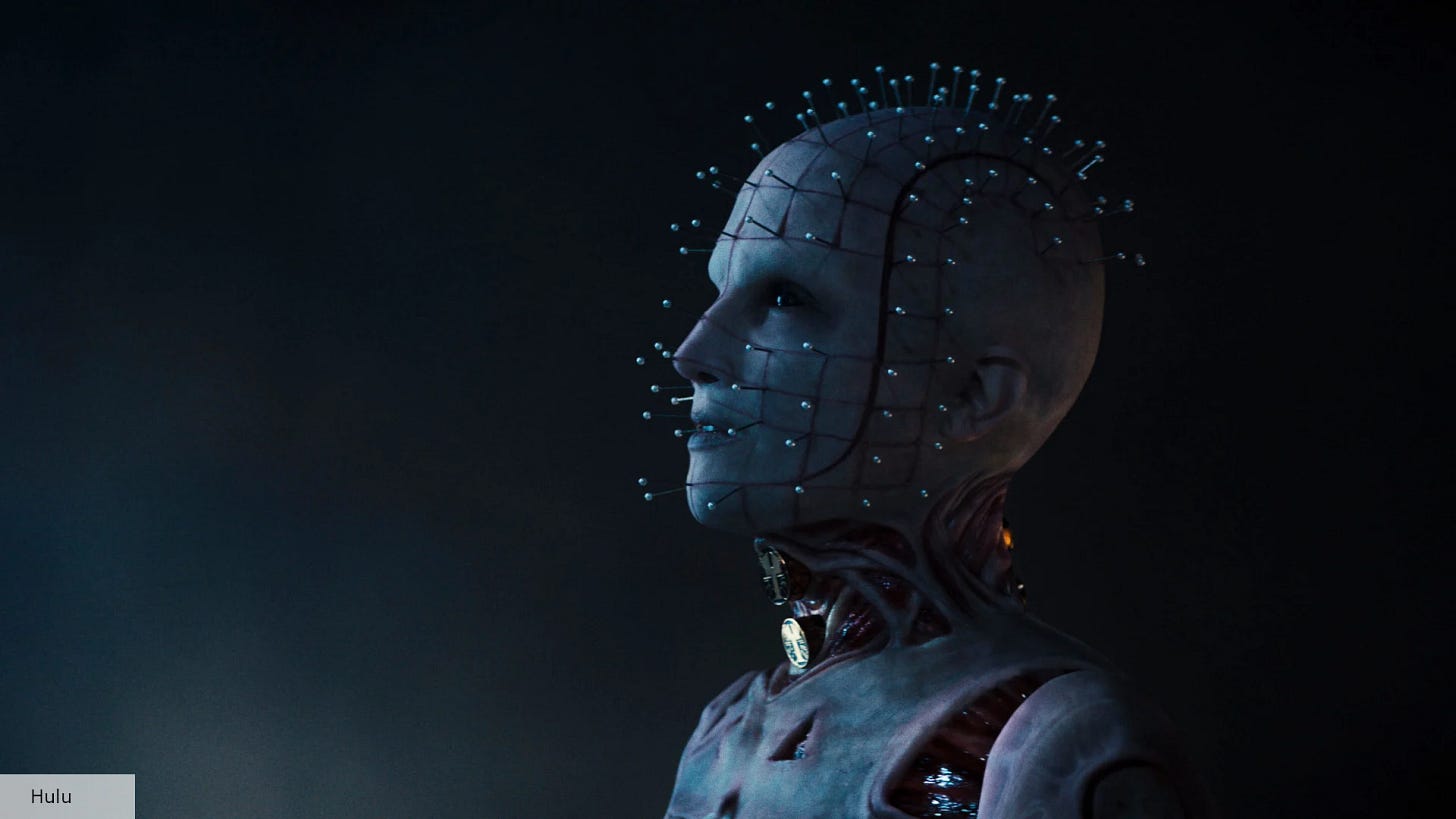Less Than Pulp, Issue 20
The Hellbound Heart, Hellraiser (2022), and Rob Zombie's The Munsters
“Save your breath for screaming…”
I reread Clive Barker’s seminal novella The Hellbound Heart to prepare for the release of the new Hellraiser film. The book, released almost forty years ago, tells a story of longing and the depths people will go to fulfill that longing. It’s deeply sexual, deeply disturbing, and still feels transgressive today. The first time I read it, I was fifteen. I remember enjoying it immensely, but revisiting it as an adult, I realize a lot of its themes went way over my head back then. I could tell there was *something* deeper about its story, but I didn’t know what that was until I read it last week.
Well-renowned as a fantasist, Clive Barker also had a firm understanding of human psychology. The three primary characters all internalize profound desires. Frank desires escape from the limitations of the flesh and after death, a return to the safety of what he previously found confining. Julia desires escape from her mundane marriage to Rory and comes to see her past dalliances with his brother Frank as representing that; when she sees the opportunity to regain what she came to idealize, she is willing, quite literally, to kill in order to attain this again. In the 1987 adaptation of the novella, Kirsty is Rory’s daughter, but in the book, she is a coworker who desires him, and this desire to rescue him from his marriage to the deceptive Julia leads her to the center of a hellish nightmare.
It’s astounding, but not surprising, how well the book fits together thematically. And it’s also not surprising that, having read it at an impressionable age, I have decided to primarily write books of a similar length. Revisiting it was a truly rich experience, and now I want to revisit other touchstones from my early days of reading. Stuff like The Green Mile, and other Barker works like Imajica and Weaveworld.
With The Hellbound Heart book fresh in my mind, I could hardly wait to see the new Hellraiser, and I’m pleased to say David Bruckner brought us the first sequel since the second movie that didn’t feel like fan fiction. I like parts of every entry of the series, but this one felt more tied to the world Barker created than the others, albeit for the current climate. There were touches throughout, like the Leviathan configuration and the architecture of Voight’s house, which established the film as canonical, but it wasn’t until the final act where everything came together.
Because it’s a new movie, I won’t spoil it, but if you watch it and want to know what I mean, ask yourself “who is the sort of person who would most likely accept the ‘gifts’ the Cenobites have to offer?” and “how has that answer changed since the writing of Barker’s novella and the original film?”
I also watched The Munsters. This much-maligned film is terribly misunderstood, like most of Zombie’s work. It requires you to be a fan of both Zombie’s movies and the TV series upon which it’s based. It’s very silly and its tone is jarring in the first half hour or so, but by the end I was all in. Everyone on screen was so clearly having a blast with the project, I found it infectious and impossible to hate. Your mileage may vary.
Do you like having book or movie reviews in this newsletter? Let me know in the comments because I like doing them.
As always, books here.
Podcast here. (Our newest episode covers the many gimmicks of horror director William Castle).
And for paid subscribers, I posted the full audiobook of my coming-of-age novella American Garbage, narrated by Kelby Losack. You can check that out here. I’m hoping to do more stuff like this, too, so stay tuned.


